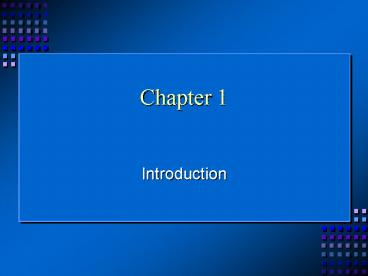Cognition: The act or process of knowing. - PowerPoint PPT Presentation
1 / 30
Title:
Cognition: The act or process of knowing.
Description:
'Cognitive psychology refers to (the study of) all processes by which ... Father. Therapist. Defining Properties. Buddy Grah. Stuart Bonnington. Georgia O'keefe ... – PowerPoint PPT presentation
Number of Views:73
Avg rating:3.0/5.0
Title: Cognition: The act or process of knowing.
1
Chapter 1
- Introduction
2
Cognition The act or process of knowing.
3
Cognitive psychology refers to (the study of)
all processes by which the sensory input is
transformed, reduced, elaborated, recovered, and
used. (Neisser, 1967)
4
Cognitive processes generally refers to human
intellectual processes such as
- Perception
- Attention
- Learning
- Memory
- Problem Solving
- Reasoning
- Decision Making
- Language Comprehension
5
The cognitive revolution
In the late 1950s or early 1960s there seemed
to be a shift in the prevailing paradigm in
psychology from behaviorism to cognitivism.
6
(No Transcript)
7
Contrasting Behaviorism and Cognitivism
- What are the core beliefs of Behaviorism?
- What are the core beliefs of Cognitivism?
8
Two important distinguishing beliefs
9
Some criteria that might be used to evaluate the
approaches
- Adequacy (or sufficiency)
- Predictive ability
- Parsimony
- Heuristic value
10
Conceptual Approaches to Cognition
- The information processing approach
- The neural network approach
11
The Information Processing Approach
The information processing approach is based on a
computer metaphor The mind works like a computer
12
Metaphor A figure of speech in which you talk
about something as if it were something else, as
if the two were analogous.
13
Examples of metaphors
- Im drowning in debt
- Shes sharp as a tack
- He has a big ego
14
Metaphors of memory
- The memory is burned into my brain.
- Its a strong memory
- My mind recorded everything that happened.
- Ill have to file that one away
- I dug up an old memory
15
Metaphors suggest a way of thinking about
something
- Memory as a muscle
- Memory as a filing cabinet
- Memory as a video recorder
- Memory as an archeological investigation
16
Examples of the computer metaphor
- Information is processed by the memory system
- Information is encoded into memory
- Information is retrieved from memory
17
Example of the information processing approach
The modal model of memory
Sensory Memory
Short Term Memory
Long Term Memory
Input
Output
18
Another example of the information processing
approach
Example based on a letter matching experiment
by Posner
19
The Experiment
- Participant is presented a pair of letters
- Participant responds as quickly as possible if
the two letters are the same (yes) or not
(no). - The time taken to respond (reaction time) is
recorded.
20
Trial Types
21
An information processing model to account for
findings
Compare Name Codes
Compare Visual Images
Different?
Access Name Codes
Different?
No
Same?
Same?
Yes
Yes
22
The Neural Network Approach
23
The Neural Network Approach
The neural network approach is based on a brain
metaphor The mind works like a brain
24
Facts about the brain
- Basic processing unit -- neurons
- Essentially two states
- active (action potential)
- passive (resting potential)
- Threshold of firing
- Neurons interconnected forming a network
- Activation (and inhibition) spreads among neurons
25
Facts about neural networks
- Processing unit neurode
- Two states
- active (output)
- passive (no output)
- Threshold of firing
- Neurodes interconnected forming a network
- Activation (and inhibition) spreads among
neurodes
26
A Hypothetical Network
27
Man
Woman
Psychologist
Artist
Father
Therapist
28
Defining Properties
Man
Woman
Psychologist
Artist
Father
Therapist
29
Defining Properties
Man
Woman
Buddy Grah
Psychologist
Stuart Bonnington
Artist
Father
Georgia Okeefe
Therapist
30
Defining Properties
Man
Woman
Buddy Grah
Psychologist
Stuart Bonnington
Artist
Father
Georgia Okeefe
Therapist































